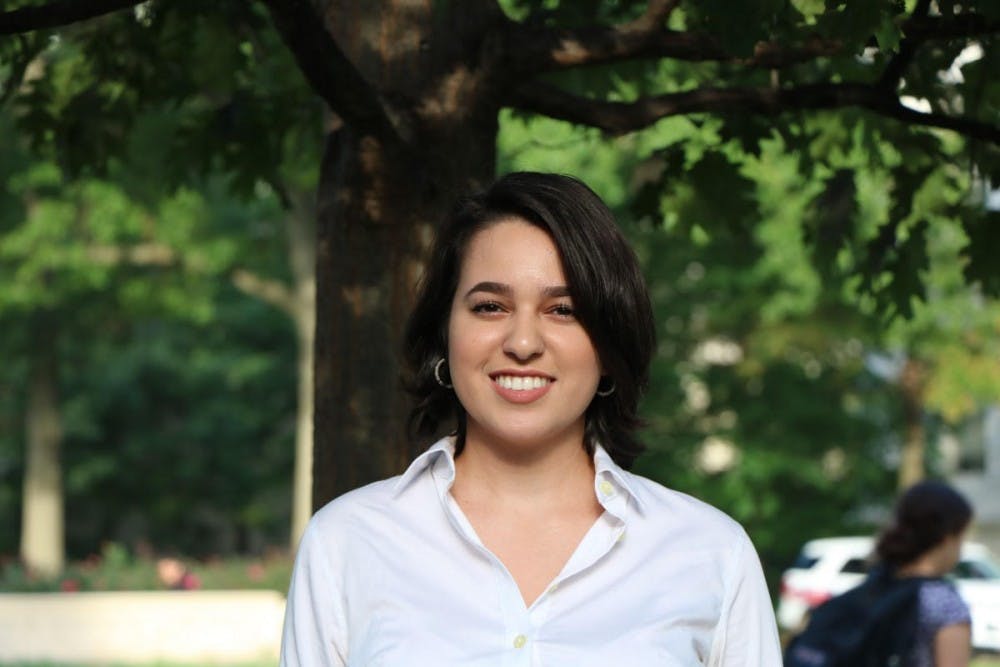Over the summer I worked at a restaurant with a staff comprised of predominantly Latin origin. They would bark orders, have casual conversations and make passing remarks in Spanish. Although I don’t speak fluent Spanish, I still understood what they said and laughed along to all of their jokes. One day, an employee asked why I wasn’t responding in Spanish and I replied that I was still learning the language and couldn’t properly communicate. His face crinkled in confusion, mulling over what I said. After several seconds of tense silence, he replied with biting humor.
“You’re not a real Latina.”
Frustration and shame instantly swept over me. How could I have defined myself as a Latinx for so long and still have my identity questioned? Was I any less Hispanic because of my parent’s decision to make English my native language, hoping to spare me the hardships they faced when moving here? Was the shape of my tongue when I pronounced the words an instant identifier that I was a fraud?
Unfortunately, this wasn’t the only time my heritage has been put on trial, and not just by those within my own community. My Latin-ness has been challenged because of my skin color, my fashion choices and even my facial features. Worse yet, this is certainly not an experience unique to me. Many Latinx people here at AU, especially those of my generation, have had the authenticity of their ethnicity called into question. I interviewed them about their stories.
Edmundo Gomez, Mexican, Junior
Gomez grew up in Southern California in a predominantly Hispanic and immigrant community. His culture was never something that he actively thought about until he moved to Washington, D.C. in 2013 to join the military. “There are so many things I truly appreciate about being Hispanic,” he explained. Being Latinx to him is a set of values, the Spanish language and food.
But he’s felt the pushback that too many Latinxs of our generation have felt. In one instance, someone challenged his heritage by stating he had to know every state in Mexico to be Mexican. He was shocked by this: “I felt like he was interrogating me. Are you asking me how Mexican I am?”
“There is pressure to subdue your Hispanic roots to be more successful … White people want us to be more white, while Mexicans want us to be more Mexican and we’re caught in between,” he said.
Delfina Barberio, Argentinian, Alum
Barberio came to the U.S. when she was four years-old and joked that she sees herself less as Latinx and more of a confused immigrant. For her, finding her identity and accepting where she fits continues to be a struggle to this day.
“When I go to Argentina they say ‘oh your accent is different, the way you do things is different.’ But when I go to the U.S. they don’t see me as the Latina they see on TV so I don’t fit,” she explained. ”Sometimes I feel like I shouldn’t call myself [Latinx], but I know that if I don’t I’m erasing my family and the story of how we got here.”
Growing up was difficult because she was teased by others, Latinxs and non-Latinxs, about who she was. The older she got, the more she carved her own path to acceptance. “I don’t satisfy anyone and I learned to be OK with that,” she shared. “I’m going to call myself Latina, no matter if anyone likes it or if I like it.”
Silvana Scott, Peruvian, Senior
Silvana Scott was born in Peru and moved to Queens, New York at eight years-old. To her, being Latinx means “having a really big family, being loud, speaking Spanglish and going to church on Sundays even though I didn’t want to.”
Scott acknowledged the pressure she felt in later life to adjust to others’ standards. Her educational environment was predominantly Hispanic until high school and college, when the demographics of her fellow students and teachers changed. “At some points I felt attacked for speaking Spanish,” she recalled. “I felt like I had to conform because most of my teachers were white.”
Although Spanish is an important part of the way she defines her identity, she doesn’t believe that it’s crucial to calling yourself a Latinx.
“We were colonized, so if you want to talk about originality and Spanish, you have to dig deeper than that … Being inclusive and intersectional is the most important thing,” Scott said.
There is no checklist of experiences and skills needed to be considered Latinx. Latinxs come in every shape, size and skin color. Being Latinx is not marked by one be-all and end-all ability. As long as we are proud of our culture and celebrate it with the respect it deserves, we are Latinxs. The sooner we stop testing others’ allegiances to our identity, the sooner we can start tearing down the larger problems that plague our community.
Leonor Fernandez is a senior in the College of Arts and Sciences, and a staff columnist for The Eagle.





